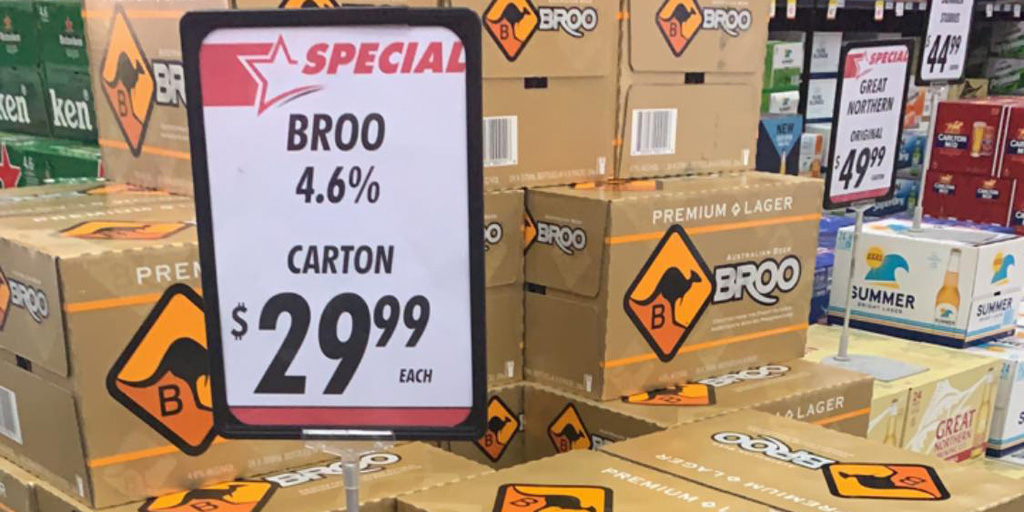
Broo avoids liquidation of Mildura home

Struggling Broo’s Mildura Brewery has avoided being wound up after the lawyers of one of its creditors sought to have the wind-up application dismissed.
Energy supplier AGL Sales Pty Ltd had applied to the Supreme Court of Victoria for outstanding debts totalling $45,439.52 in April.
The Herald Sun reports the amount owed was said to have been reduced to $42,939.52 in May and a liquidator had consented to be appointed if required.
The debt related to electricity use charges at the brewery’s Langtree Avenue premises between 1st July last year and 28th February this year.
However, when the matter came before the court, a lawyer for AGL sought for it to be dismissed with no order made for costs. Judicial Registrar Ian Irving made the order for dismissal.
Broo acquired the Mildura Brewery from chef Stefano di Pieri in February 2017. In the announcement to the ASX, Broo advised the acquisition would “provide the Company with a commercial brewery facility to immediately commence its own beer production, providing the Company with the opportunity and capacity to expand distribution of its beer products nationally.”
Kent Grogan told the AFR at the time that he paid $1 million for the brewery. He also said he was confident the facility could produce five million bottles a year.
In July 2017 the company announced upgrades and automation of Mildura to increase capacity and provide greater efficiencies saying the company would focus on Broo Premium Lager, Australia Draught, Kakadu and Mildura brands.
The company’s annual report that year advised that while Broo had acquired the Mildura Pub and Brewery leasehold businesses, valuing the plant and equipment at $200,000. However, the land and buildings on which the brewery was operated were sold to a separate company Mildura Brewery (AUB) Pty Ltd, owned equally by two companies Grogan AUB Pty Ltd and De Graaff AUB Pty Ltd. ASIC records show that on 26 February 2018 De Graaff AUB Pty Ltd assumed 100 per cent ownership of Mildura Brewery (AUB) Pty Ltd.
Broo lent Mildura Brewery (AUB) Pty Ltd $250,000 at 10.5% per annum repayable within two years to facilitate the purchase.
Broo leased the premises on ‘arms-length market rate terms’.
The annual report also said the company had invested in increasing the capacity of the Mildura brewery to more than 1.5 million litres per year, allowing Broo to contract for third party beer with discussions for this “well advanced”.
No subsequent announcement was made regarding Broo taking on third-part contracting, and the company itself outsourced its own production to CUB last year.
The company predicted the arrangement with CUB would see it place orders of 432,000 litres per quarter, or 1.7 million litres a year.

Broo is being heavily discounted to clear stock
“The CUB Agreement provides Broo with increased production and supply capacity and a scalable business model enabling Broo to meet and capitalise on market demand for our brands,” Grogan said in a statement at the time.
Broo appears to have struggled to sell the beer produced under this agreement, despite trumpeting an exclusive national arrangement with ALM.
As the beer produced under the first order with CUB rapidly approaches its Best Before date, Broo appears to have been dumping the stock at below production cost.
The East End Hotel in Bundaberg, which formerly had an exclusive distribution arrangement with Broo, has this week advertised cartons of Broo at $29.99. Brews News has seen photos appearing to show the group has more than thirty pallets of Broo in its warehouse to sell.
Other venues in the region are offering cartons of Broo with a free six-pack for $32.
In May the company announced it had borrowed money to pre-pay the $855,000 required for its next production order under its agreement with CUB.
Earlier this month Broo announced it had abandoned its plans to build the ‘World’s Greenest Brewery’ in Ballarat.
In January it was forced to confirm that its vaunted ‘ Take or Pay’ deal with a Chinese distributor had collapsed with no money paid under the arrangement it had promised would generate $120 million for the company.



